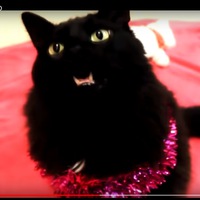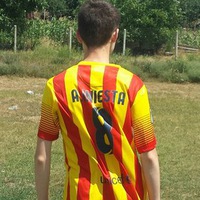Закончите предложения. Используйте mustn’t или needn’t и один из глаголов:
be, busy, clean, hurry, lose, take, tell, wait
The windows aren’t dirty. You needn’t clean them.
I must hurry. I mustn’t be late.
The letter is very important. You __________ it.
We have a lots of time. We __________.
We_____________ an umbrella. It’s not going to rain.
You_____________ a newspaper. You can have mine.
This is a secret. You _____________ anybody.
I’m not ready yet but you ___________________ for me. You go now and I’ll come
later.
Напишите отрицательные
предложения
You’ll
sleep. You won’t sleep.
I’ll
forget. I _________________________
It will
happen. ______________________
I’ll find
it. ___________________________
She’ll be
in Rome tomorrow.
_________________________
1.The windows are very dirty; they need (clean).
2.It’s very hot, so you don’t need (bring) a coat.
3.The house is old, and it badly wants (paint).
4.The famous man didn’t need (introduce) himself.
5.The floor is covered with dust; it needs (sweep).
6.The grass in the garden is very dry; it wants (water) badly.
7.The planners didn’t realise they would need (build) so many houses.
8.The shirt is quite clean; it doesn’t want (wash) yet.
9.Her shoes have a hole in them; they want (mend).
10.The
room was in a terrible mess; it needed (tidy up).
11.The
baby’s crying; I think he needs (feed).
12.I know my hair wants (cut) but I never have time to go to the
hairdresser’s.
13.John
needed (cheer up) when he heard that he’d failed his exam.
14.You should tidy the garden.- Yes, it needs (tidy).The roses want
(water),the peaches want (pick),the grass wants (cut).
Exercise 10.
Выберите правильный предлог и употребите
глагол в скобках в форме Gerund
1
It was difficult for Laura to get used to
/ with living
(live) in
a foreign country.
2
David is looking forward about
/ to ……………
(travel)
across
Asia this summer.
3
In addition of
/ to
……………….
(clean) his
room, Bob also did tine washing-up.
4
Peter is accustomed to
/ in …………
(work) long
hours in the office.
5
There’s no point in
/ about …………………… (ask) me
again — I’ve made up my mind.
6
Lisa admitted to
/ in………. . (wear) her
sister’s top without asking.
7
What’s the use of
/ with……..
(paint) the
house if we are going to sell it soon’?
8 As well as
/ with ……………….. (raise) money
for children, the charity offers advice to parents.
Exercise 11.
Употребите глаголы в скобках в правильной
форме Gerund.
1. After the accident the injured man recovered
consciousness in hospital. He remembered (cross) the road, but he
didn’t remember (knock down). 2.I am still thirsty in spite of
(drink) four cups of tea. 3.This carpet always looks dirty, in spite
of (sweep) every day. 4.He didn’t return the book he had borrowed
after (promise) to do so. 5.He got into the house by (climb) through
a window, without (see) by anyone. 6.I think he was foolish to buy a
car before (learn) how to drive it. 7.Peter is a much better
chess-player than I am, and he was very much surprised when I beat
him yesterday for the first time. He isn’t used to (beat). 8.He went
to bed at 9p.m. in spite of (sleep) all the afternoon. 9.He
complained of (give) a very small room at the back of the hotel.
10.The little girl isn’t afraid of dogs in spite of (bite) twice.
11.The little girl didn’t go near the dog; she was afraid of (bite).
12.The baby went to sleep a few minutes after (feed). 13.The little
girl never gets tired of (ask) her mother questions, but her mother
often gets tired of (ask) so many questions. 14.They lived in a small
town for ten years and then moved without (make) friends with any of
their neighbours. 15.The little boy was punished for (tell) a lie by
(send) to bed without his supper. 16.Mary was chosen a year ago to
act in the school play. She was very pleased at (choose). 17.Jack
doesn’t like boxing. I don’t know if he is afraid of (hurt) his
opponent or of (hurt) himself. 18.He was taken to hospital
unconscious after the accident. He died in hospital without (recover)
consciousness. 19.I always treat people politely and I insist on
(treat) politely. 20.The boy was very hungry at eleven o’clock in
spite of (eat) a big breakfast two hours earlier. 21.She didn’t get
out of bed until ten o’clock in spite of (wake up) at seven.
Exercise 12.
Поставьте галочку для каждой пары
предложений, если их значения одинаковы(√).
Если значения разные, поставьте
крестик(X).
1
a
I
can’t
bear
being
tickled!
b I can’t bear to be
tickled!
2
a My boss went on saying that he was very proud of all of us.
b My boss went on to
say that he was very proud of all of us.
3
a Have you stopped having lunch yet?
b Have you stopped to
have lunch yet?
4
a Have you started having lunch yet?
b Have you started to
have lunch yet?
5
a They continued climbing the mountain
b They continued to
climb the mountain.
6
a We all saw the reporter interviewing the witness,
b We all saw the
reporter interview the witness.
7
a I love playing practical jokes on my younger brother,
b I love to play
practical jokes on my younger brother.
8
a Why don’t you try holding your breath for a minute or two?
b Why don’t you try to
hold your breath for a minute or two?
9
a I hate being cheated by taxi drivers,
b
I hate to be cheated by taxi drivers.
УПОТРЕБЛЕНИЕ
ИНФИНИТИВА И ГЕРУНДИЯ
|
The to-infinitive is |
The Gerund is used |
NOTE!
НО:
НО: |
NOTE!
НО:
|
|
MIND THE DIFFERENCE!
I‘ve
try
need
forget
stop
be
Если
mean
go
regret
prefer
prefer
want
hate
be |
ТРЕНИРОВОЧНЫЕ
УПРАЖНЕНИЯ
Exercise 13.
Подчеркните правильный вариант.
1
I really don’t feel like going
/ to go out
tonight. Do you?
2
Everyone expected his business failing
/ to fail within
the first few months.
3
What would you like doing
/ to do this
evening?
4
We discussed turning
/ to turn the
attic into a spare bedroom with the architect.
5
She wasn’t able speaking
/ to speak very
clearly after her accident.
6
Do you mind moving
/ to move your
car, please? You’re blocking the road.
7
They’re going to postpone making/to
make a
decision until next month.
8
Are you planning of
getting / to get a
new DVD player?
9
Are you thinking of
getting / to get a
PlayStation?
10
I’m very pleased telling
/ to tell you
that you’ve passed!
11
Sarah’s offered putting
/ to put us
up for the weekend.
12
I’m really looking forward to
going / to go on
the cruise.
Exercise
14.
Выберите правильный вариант.
1
‘Welcome
home.’
Thanks. It’s very nice ..A…
back.’
A
to be В
be С
to being
2
‘…………. is good for your health.’
‘I know, but I don’t enjoy
it.’
A
To have exercised В
Exercising С
To exercising
3
‘You have to………….home early tonight.’
‘I will.’
A
be coming В
come С
coming
4
‘Do you watch TV very often?’
‘No. I consider
it…………a waste of time.’
A
to be В
being С
is
5
‘Did you enjoy the play?’
‘Yes.
Were you involved in………….the scenery?’
A
make В
to make С
making
6
‘Does your son study very much?’
‘No,
he spends his time………….television.’
A
to watch В
watching С
watch
7
‘Did anyone help you with your homework?’
‘No.
I managed………..it by myself.’
A
do В
to do С
doing
8
‘Let’s go out tonight.’
‘I’d
rather………….at home. I’m tired.’
A
staying В
to stay С
stay
9
‘Why
did you go to the supermarket?’
‘………….some
flour.’
A
To buy В
Buy С
Buying
10
‘Do
you know who………….to in the office?’
‘Yes,
Mrs Jacobs.’
A
speaking В
speak С
to speak
Страница 79
4. Измени эти предложения так, что бы они звучали более вежливо.
Ответ:
1) Mary Brown is not a very young woman. — [Мэ’ри Браун из нот э вэри йан: вумэ’н] — Мэри Браун не очень молодая женщина.
2) Your room is not very clean. — [Ё ру:м из нот вэри кли:н] — Твоя комната не очень чистая.
3) Lizzy is not very strong. — [Лиззи из нот вэри строн:] — Лиззи не очень сильная.
4) Rob is not a very tall boy. — [Роб из нот э вэри то:л бой] — Роб не очень высокий мальчик.
5) This queen is not very good. — [З’ис куи:н из нот вэри гу:д] — Эта королева не очень хорошая.
6) Your bike is not very new. — [Ё байк из нот вэри нъю] — Твой велосипед не очень новый.
5. Закончи вопросы при помощи слов противоположного значения.
Ответ:
1) Is the pig fat or thin? — [Из з’е пиг фэ’т о: с’ин?] — Свинья толстая или худая?
2) Are the windows clean or dirty? — [А: з’е уиндоу кли:н о: дё:ти?] — Окна чистые или грязные?
3) Is that street long or short? — [Из з’э’т стри:т лон: о: шо:т?] — Эта улица длинная или короткая?
4) Are the cats strong or weak? — [А: кэ’тс строн: о: уи:к?] — Кошки сильные или слабые?
5) Is the shelf high or low? — [Из з’е шэлф хай о: лоу?] — Полка высокая или низкая?
6) Is the girl big or small? — [Из з’е гё:л биг о: смо:л?] — Девочка большая или маленькая?
7) Are they sad or happy? — [А: з’ей сэ’д о: хэ’ппи?] —Они грустные или веселые?
Is the book thin or thick? — [Из з’е бу:к с’ин о: с’ик?] — Книга тонкая или толстая?
6. Закончи предложения, вставив в них подходящие по смыслу прилагательные.
Ответ:
1. Sparrows have small wings — [Спэ’рроуз хэ’в смо:л уин:з] — У воробьев маленькие крылья.
2. I feed my cat very well. Now my cat is fat. — [Ай фи:д май кэ’т вэри уэл. Нау май кэ’т из фэ’т] — Я очень хорошо кормлю моего кота. Теперь мой кот толстый.
3. My horse is big and strong. — [Май хо:с из биг энд строн:] — Моя лошадь большая и сильная.
4. Jenny is thin but she is not weak. — [Дженни из с’ин бат ши: из нот уи:к] — Дженни худая, но не слабая.
5. The windows in my room are clean.They are not dirty. — [З’е уиндоуз ин май ру:м а: кли:н. З’ей а: нот дё:ти] — Окна в моей комнате чистые.Они не грязные.
6. I can see a high shelf on the wall. — [Ай кэ’н си: э хай шэлф он з’е уо:л] — Я вижу высокую полку на стене.
7. That is a very low door. — [З’э’т из э вэри лоу до:] — Та дверь — очень низкая.
8. Our street is not short, it is long. — [Оуэ: стри:т из нот шо:т, ит из лон:] — Наша улица не короткая, она длинная.
7. Закончи эти предложения по образцу.
Образец: Jane has a very clean room. She likes clean rooms.
Ответ:
1) Dorris has a small bird. She likes small birds. — [Доррис хэ’з э смо:л бё:д. Ши: лайкс смо:л бё:дз] — У Доррис есть маленькая птичка. Ей нравятся маленькие птицы.
2) Tom and Mary have a high strong horse. They like high strong horses. — [Том энд Мэ’ри хэ’в э хай строн: хо:с. З’ей лайк хай строн: хо:сиз] — У Тома и Мэри есть высокая сильная лошадь. Им нравятся высокие сильные лошади.
3) The boys have a good computer game. They like good computer games. — [З’е бойз хэ’в э гу:д компъютэ: гэйм. З’ей лайк гу:д компъютэ: гэймз] — У мальчиков есть хорошая компьютерная игра. Им нравятся хорошие компьютерные игры.
4) We have a nice apple pie. We like nice apple pies. — [Уи: хэ’в э найс э’пл пай. Уи: лайк найс э’пл пайз] — У нас есть красивый яблочный пирог. Нам нравятся красивые яблочные пироги.
5) We have a tall birch tree by our house. We like tall birch trees. — [Уи: хэ’в э то:л бё:ч три: бай ауэ: хаус. Уи: лайк то:л бё:ч три:з] — У нас есть высокая береза возде дома. Нам нравятся высокие березы.
6) I have a long coat. I like long coats. — [Ай хэ’в э лон: коут. Ай лайк лон: коутс] — У меня есть длинное пальто. Мне нравятся длинные пальто.
7) Rex has a big long bone. He likes big long bones. — [Рэкс хэ’з э биг лон: боун. Хи: лайкс биг лон: боунз] — У Рекса есть большая длинная кость. Он любит большие длинные кости.
The little girl has a short dress. She likes short dresses. — [З’литл гё:л хэ’ э шо:т дрэс. Ши: лайкс шо:т дрэсиз] — У маленькой девочки есть короткое платье. Она любит короткие платья.
9) You have a good blue bike. You like good blue bikes. — [Ю хэ’в э гу:д блу: байк. Ю лайк гу:д блу: байкс] — У тебя есть хороший синий велосипед. Тебе нравятся хорошие синие велосипеды.
Если вам понравился сайт, поделитесь страничкой в соцсетях, чтобы не потерять его:
Подпишитесь на нашу группу вк!
Use must when you think it is necessary or very important.The windows are dirty I must clean them.We must go to the bank today.We have not got any money.I must hurry.I must not be late.Needn’t
I needn’t do it-it is necessary to do.I needn’t clean the window.They aren’t dirty.Should It is a good thing to do or the right thing to do.It is a good film.You should go and see.Have to-it is necessary for me to do it.I’m obliged to do it.Past-Had to.Question and negative do does did.
Tom doesnt have to workvery hard.He has got an easy job.Have to-When you are not giving your personal opinion.
Jill will not be here this afternoon,She has to go to the doctor.In many countries men have to do military service.(this is not my opinion- it is the law in those countries)

Вопрос задан 13.06.2023 в 12:34.
Предмет Английский язык.
Спрашивает Коротенко Артем.
0
0
Ответы на вопрос
Отвечу на вопрос мгновенно! Нейросеть ChatGPT. Жми!

Отвечает Рудік Андрій.
Answer:
The windows aren’t dirty. You needn’t clean them.
Окна не грязные.Тебе не надо мыть их.
_____________
0
0
Спроси у Chat GPT бесплатно без регистрации!
Похожие вопросы

Английский язык 04.06.2023 23:53 3 Насиголла Сая
1. He knows English well. He ___________ translate this article. A canB hasC will haveD is able2.
Ответов: 2

Английский язык 15.06.2020 18:06 11 Рудометов Владик
What’s your name?Where are you from?What are your hobbies?What’s your job?What sports do you like?Ho
Ответов: 1

Английский язык 04.02.2019 03:46 8 Тогмитов Дашинима
Помогите ответить на вопросы по тексту. вопросы :1) What is Windows?2) Why do you need Windows on yo
Ответов: 1

Английский язык 02.06.2023 21:50 0 Barbq-Junior Андрюха
There are plenty of tomatoes in the fridge. You (mustn’t/needn’t/may not/should not) buy any. 2. It’
Ответов: 1

Английский язык 30.06.2020 11:38 20 Петухова Вероника
Помогите текст перевести, через переводчик текст несвязный ппц((( If you have a medical emergency
Ответов: 1

Английский язык 17.01.2019 15:27 10 Семикина Елизавета
1. _____ you help me with my homework? A) Are B) May C) Can D) Need 2. You _____ enter without a
Ответов: 1

Английский язык 15.02.2021 15:02 5 Бачурин Илья
Помогите, очень срочно!!! Roy, you (should take /should have taken) the dog out before you leave,
Ответов: 2

Английский язык 18.02.2019 20:23 38 Малая Янина
1. We _______ see the lake from our bedroom window. are able can must might 2. — _______ you sp
Ответов: 2

Английский язык 11.09.2020 00:15 8 Курин Никита
Привет!Можете перевести текст и вставить по смыслу слова.Спасибо There is a difference between an
Ответов: 0

Английский язык 30.01.2021 16:11 4 Галас Діма
Пожалуйста помогите, очень срочно надо!!! Вставить модальные глаголы. 1. ______ I speak to Jane, p
Ответов: 2

Английский язык 06.06.2023 06:00 8 Корнеева Анастасия
Exercise 1. Choose the modal verb which, from your point of view, suits the situation better. 1. Y
Ответов: 1
Топ вопросов за вчера в категории Английский язык

Английский язык 21.06.2019 23:09 290 Галат Аня
Нужен рассказ про Бэтмена на английском с переводом на русский.
Ответов: 1

Английский язык 05.06.2023 23:49 132 Акулова Екатерина
For questions 1-15, select the most appropriate word (A, B, C or D) to complete each gap. Have you
Ответов: 0

Английский язык 11.04.2021 02:01 829 Бырка Елена
Напишите сочинение о любом супергерое на англиском
Ответов: 2

Английский язык 08.07.2020 22:09 83 Яковенко Никита
Советы для иностранцев чтобы лучше понять россию. на английском языке и желательно с переводом.
Ответов: 1

Английский язык 27.06.2023 13:51 449 Чудин Вячеслав
Напишите описание внешности и характера известного человека, на английском Кратко
Ответов: 2

Английский язык 02.06.2023 20:21 461 Петров Денис
You have received an email message from your English-speaking pen-friend Lily: From: [email p
Ответов: 2

Английский язык 07.06.2023 07:21 92 Трунова Эля
7 предложение о любимом писателе на английском языке небольшие.жилательно о Пушкине.с переводом на Р
Ответов: 2

Английский язык 04.06.2023 23:48 568 Елькин Данил
Дам 30 баллов за правильные ответы! Fill in the correct word from the list below. • entire • essenti
Ответов: 2

Английский язык 19.06.2023 18:44 109 Григорьева Даша
фокусе 5. Напиши, что находится рядом с твоим домом, используя таблицу. post office hospital garage
Ответов: 2

Английский язык 01.05.2023 16:48 99 Саранская Анастасия
Рассказ про коллекцию монет на Английском
Ответов: 2
Последние заданные вопросы в категории Английский язык

Английский язык 09.10.2023 10:10 4 Попова Сусанна
Group the adjectives in the chart. friendly, kind, rude, kindhearted, honest, funloving, responsib
Ответов: 1

Английский язык 09.10.2023 10:10 24 Пономаренко Паша
Вставьте местоимения some, any, no или их производные. 1) Did he say __ about it? – No, he said __.
Ответов: 1

Английский язык 09.10.2023 10:09 22 Боднарчук Максим
Please help meeeee……
Ответов: 1

Английский язык 09.10.2023 10:09 16 Фролова Алена
Помогите , сочинение по английскому языку. Тема «свободное время с родителями » даю максимум балов
Ответов: 1

Английский язык 09.10.2023 10:09 17 Sandul Sereoja
Ребята помогите плиз.
Ответов: 1

Английский язык 09.10.2023 10:09 15 Сысоева Ульяна
Перевод помогите !!!Даю 30 баллов
Ответов: 1

Английский язык 09.10.2023 10:08 15 Лапина Соня
10 предложений с wish и wishes
Ответов: 1

Английский язык 09.10.2023 10:07 18 Котов Никита
Помогите выполнить задания пожалуйста С 19-26
Ответов: 1

Английский язык 09.10.2023 10:07 23 Базан Вова
Who is your favourite belarusian singer?why?white about him / her помогитеее
Ответов: 1

Английский язык 09.10.2023 10:05 9 Смирнов Евгений
Напиши письмо своему другу по переписке и расскажи что можно сделать и реально сделать, что бы защищ
Ответов: 1
< Предыдущий
Следующий >
Упражнение 4.
Вставьте “must” или “had to”.
I had to go to the bank yesterday to get some money.
The windows are very dirty.
I _____________________________ clean them.
The windows were very dirty yesterday.
I ________________________ clean them.
I ________________________ get up early tomorrow.
I’ve got a lot to do.
Come on!
We ______________harry.
We haven’t got much time.
We arrived home very late last night.
We ___________________wait half an hour for a taxi.
These cakes are very nice.
You ________________have one.
Ann came to the party but she didn’t stay very long.
She ___________________leave early.
He didn’t know how to use the machine.
I ___________________show him.
I was nearly late for my appointment this morning.
I ___________ _run to get there on time.
Вы перешли к вопросу Упражнение 4?. Он относится к категории Английский язык,
для 10 — 11 классов. Здесь размещен ответ по заданным параметрам. Если этот
вариант ответа не полностью вас удовлетворяет, то с помощью автоматического
умного поиска можно найти другие вопросы по этой же теме, в категории
Английский язык. В случае если ответы на похожие вопросы не раскрывают в полном
объеме необходимую информацию, то воспользуйтесь кнопкой в верхней части
сайта и сформулируйте свой вопрос иначе. Также на этой странице вы сможете
ознакомиться с вариантами ответов пользователей.






